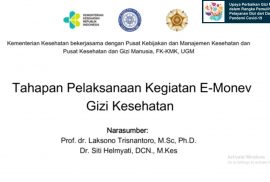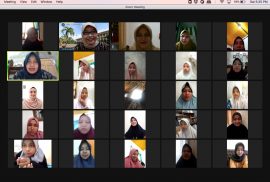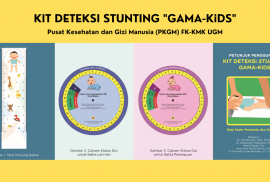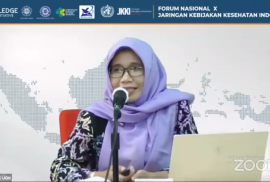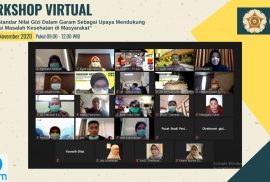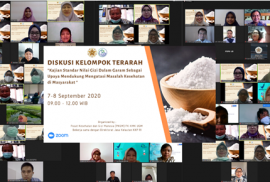The e-Monev activity for the Recovery of the Nutrition Program from the impact of the Covid-19 Pandemic was a collaboration between the Indonesian Ministry of Health and the Center for Health Policy and Management in partnership with the Center for Human Health and Nutrition (CH2N), the Faculty of Medicine, Public Health, and Nursing (FK-KMK), Gadjah Mada University. This activity also involved 16 other universities that acted as assistants to 260 district/city health offices from 34 provinces in Indonesia. The e-Monev innovation was a means of monitoring and evaluation, electronic-based, by utilizing routine data that had been collected through e-PPGBM. This activity was carried out in October – November 2020 to assess how the impact of the pandemic on nutrition programs related to stunting in 260 districts/cities with stunting loci in 2020. Partner universities played a role in assisting district/city health offices in collecting data, analyzing the impact of the pandemic, writing policy strategies and policy briefs for recovery strategies for the four nutritional indicators (weighing children under five, exclusive breastfeeding, vitamin A, PMT for toddlers) from the impact of the Covid-19 pandemic. During the activity there were also several development activities such as qualitative data analysis and the use of the PulihCovid19 nutrition dashboard to facilitate data collection and analysis.
For complete information on nutrition e-monev, you can access the following link (Bahasa Indonesia):

